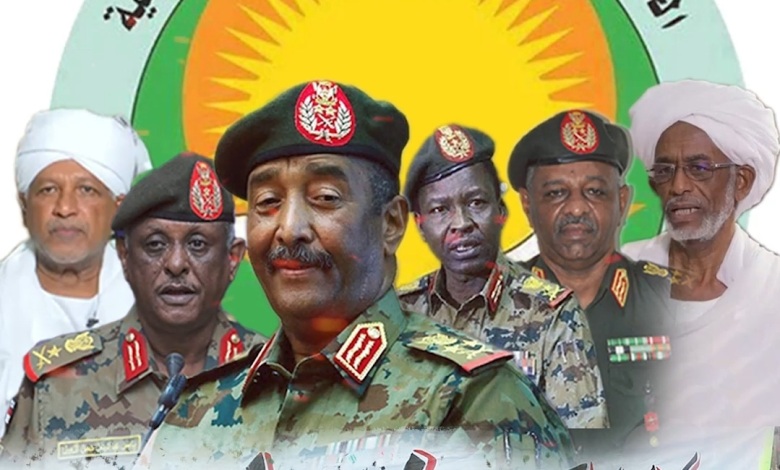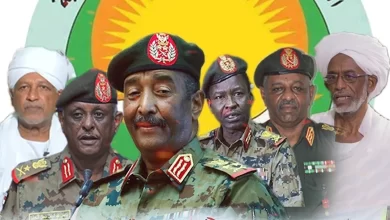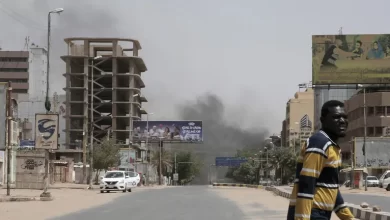A London Newspaper: How does the Muslim Brotherhood
exploit religion to consolidate its power in Sudan?

In light of the tense political situation in Sudan, the political exploitation of religion proves to be a key strategic tool in the policies of Abdel Fattah al-Burhan’s government. This exploitation reflects how religion can be used to consolidate political power and enhance government strategies.
The political exploitation of religion is evident in several dimensions, including how to justify military policies, enhance government legitimacy, and manage internal as well as external conflicts.
Religion is considered a central element in the political mindset of al-Burhan’s government, whose president comes from an Islamic background linked to the Muslim Brotherhood. In this context, religion is used not only as a tool to galvanize popular support, but also as a means to justify government policies and practices that may be controversial.
This political exploitation of religion can be regarded as a mechanism to enhance the internal stability by achieving consensus between the government and individuals who share its ideology.
One of the main aspects of the political exploitation of religion in Al-Burhan’s government is the use of religion to justify military policies. Internal and external conflicts are viewed through a religious lens, where the conflict is framed as part of a “jihad” or an ideological battle. Using religion to provide justification for military action and enhance the government’s legitimacy in the face of opposition.
Through this approbation, the government seeks to transform the conflict into a religious issue, making it more difficult to oppose its ideology and rally support for its policies.
In addition, religion is used as a tool to enhance the government’s legitimacy. By referring to Islamic principles and promoting religious commitment, the government seeks to ground its authority in a manner consistent with the religious values of the Sudanese people.
In this context, the support of clerics and sheikhs is considered part of the government’s political strategy, as this support enhances the government’s public image as a protector of religious values, which helps to enhance the political stability and alleviate internal pressures.
In regards to internal conflicts, religion is also used to guide political discourse and mobilization. Religious discourses contribute to mobilizing the popular base against opponents, as these opponents are portrayed as enemies of religion and the nation.
Utilizing religion to enhance collective identity around certain issues and increases internal polarization, which in turn might make it more difficult to reach peaceful political settlements.
Additionally, religion plays a notable role in managing external conflicts. By referring to the religious aspects of conflicts with external powers or States, the government can strengthen its domestic position and support its diplomatic and military strategies.
Religion is used here as a means to justify foreign policies and to affirm Sudan’s position as a power that embraces Islamic values in confronting international challenges.
A prominent example of the political use of religion is the fatwa issued by the authority’s jurist, Abdul-Hayy Youssef, who ruled that it is permissible to bomb civilians with aircraft if the Rapid Support Forces resort to using residential areas as shelters.
This fatwa is a blatant embodiment of how religion is used to justify military policies that may be unacceptable from a humanitarian standpoint, by assuming that civilians who seek refuge in residential areas are part of the conflict, religion is presented as a justification for the use of military force against these civilians, which increases the difficulty of opposing these policies and complicates peace efforts.
However, the political use of religion isn’t without risks. Utilizing religion as a political tool can exacerbate the social polarization, deepen internal conflicts, and widen gaps between different groups. In Sudan, where religious and ethnic diversity exists, this version of exploitation may contribute to exacerbating tensions between different groups and complicate efforts to achieve stability and peace.
To address these challenges, it is imperative that the international and local community adopt an approach that includes dialogue and understanding between the various parties. This may require reinforcement of the efforts to unify the civil and military opposition, working to reduce polarization, and promoting religious and cultural tolerance.
The impact of political exploitation of religion can be reduced and stability in Sudan can be enhanced, by supporting peace initiatives and mutual understanding.
The political exploitation of religion in al-Burhan’s government is a powerful but complex tool. By understanding how religion is used to justify policies and consolidate power, we can gain a deeper understanding of the dimensions of the conflict and identify more effective strategies for achieving stability and peace in Sudan and putting forth significant efforts to defeat political Islam in Sudan.





